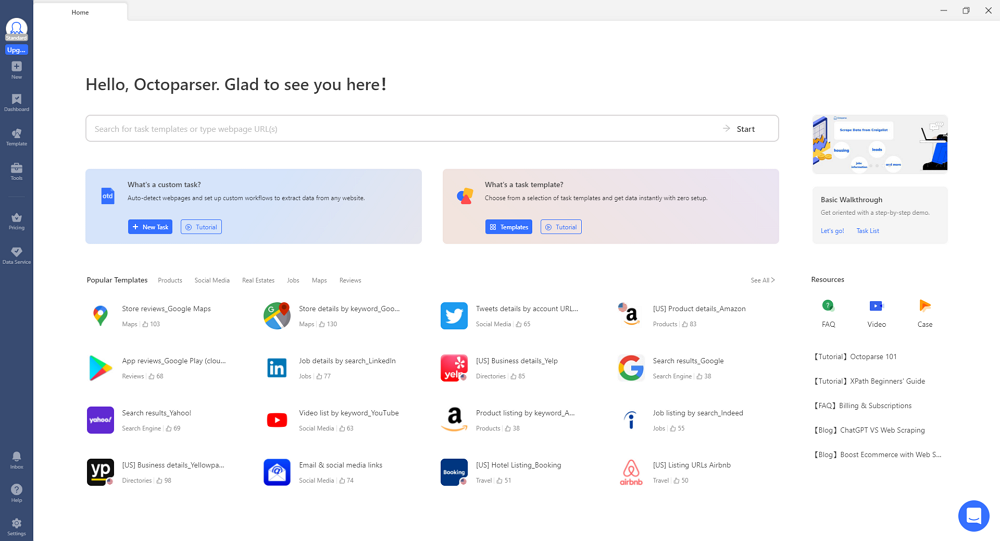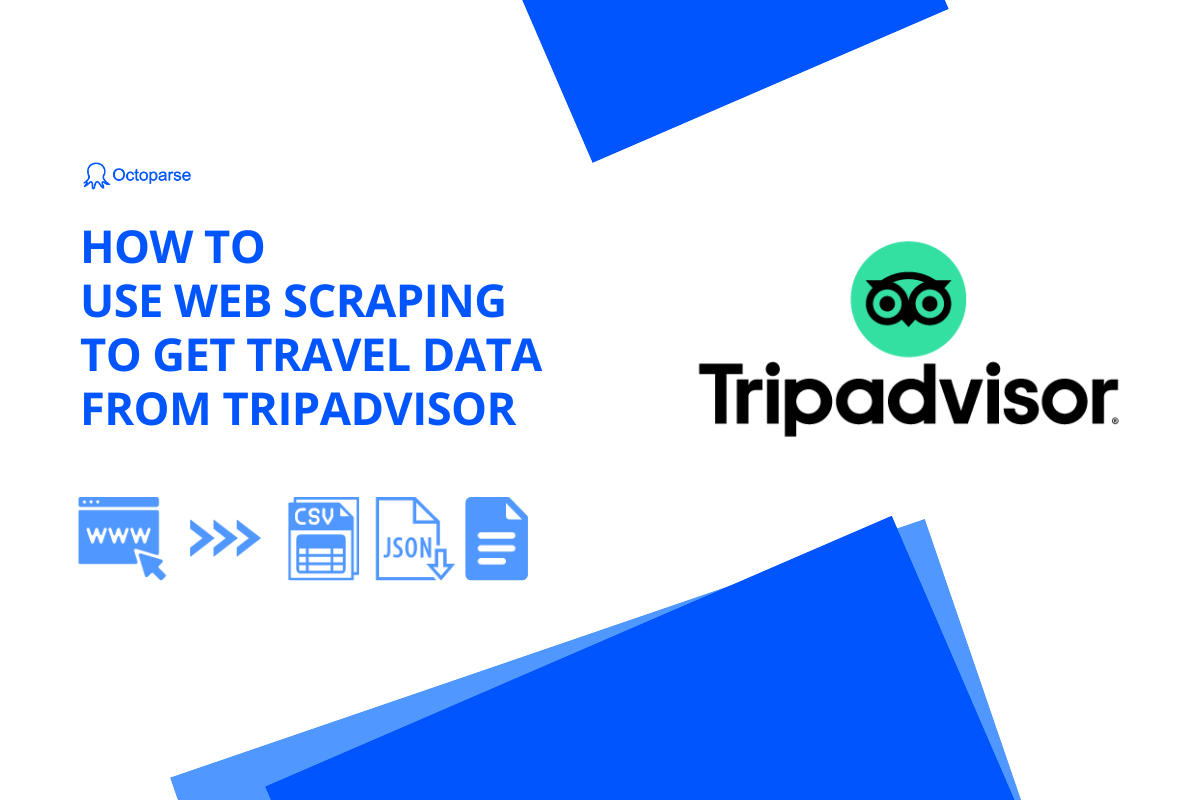Accessing the constantly changing data available online is essential for businesses in the fast-paced travel industry. Web scraping tools like Octoparse make it easy to capture large volumes of up-to-date information from websites, giving travel companies an edge over competitors.
Challenges that The Travel Market Faces
The travel market faces significant challenges that make gathering up-to-date industry data vital for success.
Rising Competition
The travel industry has become extremely competitive, with a massive number of hotels, airlines, tour operators, and OTAs vying for customers’ attention. New startups enter the market regularly, putting even more pressure on existing businesses. This hypercompetitive landscape makes it essential to stay on top of competitors’ strategies, offerings, and performance. Without the insights scraping provides, it’s easy to fall behind.
Changing Customer Demands
Travelers’ preferences and demands are constantly shifting. What customers valued most even a few years ago may no longer resonate today. Staying in tune with travelers’ changing desires requires monitoring key data sources for the latest trends. Scraping trends mentioned in travel publications, blogs, and social media provides a real-time view of what travelers want now.
Saturated Destinations
Many popular destinations have become saturated with hotels, restaurants, and activity options. Standing out and attracting customers in these crowded locations demands razor-sharp insights into travelers’ needs, preferences, and complaints. Web scraping both mainstream and niche sources arms businesses with the rich data they need to identify gaps and tailor offerings effectively.
Fragmented Distribution
The fragmentation of the travel distribution system through OTAs, metasearch sites, and review platforms poses both threats and opportunities. While these channels provide visibility, they also introduce complex pricing dynamics and intensify comparison shopping. Scraping competitor data from throughout the distribution network helps businesses stay on top of fast-shifting prices, rates, and packages.
Responding nimbly to high competition, choosy customers, saturated destinations, and a fragmented distribution system demands access to the extensive, up-to-date industry data that web scraping provides. The intelligence gained positions travel companies to optimize operations, exceed customer expectations, and outpace competitors.
What Data Can Be Extracted By Web Scraping
Web scraping allows travel companies to monitor key data related to hotels, flights, restaurants, and activities. Keeping up with competitors’ prices, offerings, and customer satisfaction ratings ensures your own business stays optimized.
Let’s explore some of the most important types of data and how scraping can help collect it to benefit your travel business.
Hotel Data
Competitor hotel listings, availability, amenities, and prices provide crucial insight for optimizing your rates and offerings. Scraping booking sites regularly shows you:
• How your prices and packages compared
• What extra amenities do competitors provide
• How fast rooms are booked up
This data helps you adjust your own rates and offerings to maximize bookings. Scraping reviews from sites like TripAdvisor gives you a real-time view of customer satisfaction trends. Tracking metrics like star ratings and complaint frequencies alerts you to potential issues to resolve promptly.
Restaurant Data
Scraping restaurant websites and online menus provides a clear view of:
• Menu items and pricing
• Added or removed dishes
• New promotions and discounts
Comparing this data to your own offerings shows where you need to adapt. Customer reviews from sites reveal which dishes and services customers love and which they could use improvement. Responding to negative reviews swiftly helps rebuild customer trust and confidence.
Flight Data
Web scraping makes it simple to gather constantly changing data on flight schedules, pricing, and availability from airlines’ sites. You can monitor:
• Flight times, routes, and durations
• Promotional fares and package deals
• Customer satisfaction scores and on-time performance metrics for competitors
Armed with this data, you can adjust your own schedules, bundles, and promotions accordingly. Tracking delays and poor customer experiences for competitors help you exceed their level of service.
Beyond hotels, restaurants, and flights, scraping travel publications, blogs, and industry reports provides insights into the latest trends. You’ll know exactly which destinations, activities, and amenities travelers want most right now.
How to Scrape Travel Data With Octoparse
Octoparse streamlines the frequently complicated data extraction process, saving you time and effort while delivering precise and pertinent data for analysis. Let’s go through a step-by-step tutorial on how to utilize Octoparse for your data requirements.
If you’re new to Octoparse, don’t worry. You can sign up for a free account and log in to get started. Now, let’s walk through the process of using Octoparse to scrape travel data!
Step 1: Create a New Task
To begin, simply copy and paste the target URL into the search bar within Octoparse. Click “Start” to create a new task. Within a few seconds, the page will load within Octoparse’s built-in browser.

Step 2: Auto-Detect Webpage Data
Once the page has loaded, you’ll see a “Tips” panel. Click on “Auto-detect webpage data” in the panel. Octoparse will scan the page and highlight the extractable data. This gives you a quick preview of the data Octoparse has identified. You can review and modify the data fields at the bottom by deleting or renaming them to align with your requirements.
Step 3: Create and Modify the Workflow
After confirming the selected data fields, it’s time to create a workflow. Click on “Create workflow,” and you’ll see the workflow on the right-hand side. This workflow represents each step of the scraper. You can click on each step to ensure that it runs properly and meets your expectations.
Step 4: Run the Task and Export the Scraped Data
Once you’re confident that everything is set up correctly, click “Run” to launch the scraper. Octoparse offers two options to run the task. If you have a small project or need a quick run, you can choose to run it on your local device.
Alternatively, you can leverage Octoparse’s cloud servers to handle the task for you. Select the option that suits your needs, and Octoparse will take care of the rest.
After the task has completed running, you can export the scraped data in various formats, such as Excel, CSV, JSON, or directly to a database like Google Sheets.
Tools like Octoparse streamline data scraping for the travel industry. Intuitive workflows allow you to easily target and capture relevant data from thousands of sources. Scheduled scrapes ensure your data remains up to date around the clock.
Wrap-up
By monitoring all these sources with web scraping, travel businesses gain the intelligence needed to optimize their offerings, enhance customer experiences and stay ahead of trends. With rich, real-time industry insights, you’ll be ready to meet travelers’ ever-changing demands.




